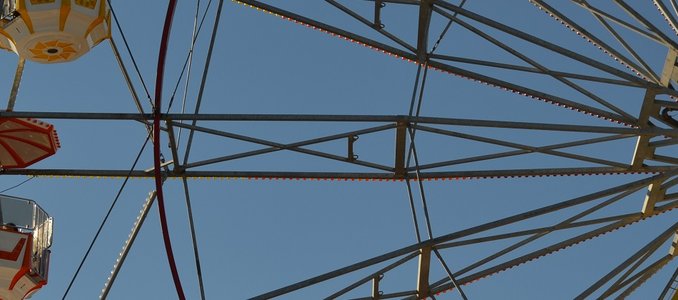
Making the most of innovations
How do surplus fabrics end up as herb pots and toilet bags? Can the recycling of animals’ food bags reduce the coal emissions of cement manufacturing? These and many other good ideas have been implemented in the cooperation between TUAS’ students and companies.
Text: Elise Koskinen & Mira Koivumäki, students of journalism. Pictures: Elise Koskinen
– All cooperation projects with companies are very rewarding. The best way to learn is getting a real commission from a company and working with them. We have good examples of how students’ ideas have become completely new products or operational methods for a company, says Sara Malve, a fourth-year student in Sustainable Development and the Student Assistant of the research group in Sustainable Development and Corporate Responsibility.
The young student assistant’s role and challenges in the group have increased year by year. The best sides of studying have been real projects done with companies and different commissions.
Sara Malve considers the student–company cooperation significant also for the companies. Students have state-of-the-art knowledge and ideas. They are inspired by concrete doing and companies get fresh viewpoints for their operations.
– I consider sustainable development to be in a key position in all sectors of society. In the future, all companies will probably be somewhat involved in resource efficiency work, Malve enthuses.
Is waste always waste?
Leader of the research group, M.Sc. (Econ.) Piia Nurmi says that the aim is to create industrial cooperation and rouse companies to circular economy thinking.
– What is now considered a problem can be seen as a possibility in the future. Waste flows become raw material for another operator. In the end, the word “waste” exists no more – instead everything is productive material, Nurmi envisions.
The activity of the research group is working life based student–company cooperation. Customers’ and communities’ needs are the starting point.
– Companies can, for example, order research, clarifications and theses that offer resource-efficient ideas. They can offer practical training places and learning in projects and different workshops. In innovation camps, the ideas of a large student group are harnessed and new ones are created, Nurmi continues.

The ideas do not come up in a minute, or then they do. If the company’s own resources are not enough for implementing the ideas, then the students of the region have potential. Cooperation is about refining thoughts, testing different methods and the end result may even be a completely new product.
Students’ ideas and competence to benefit companies
The companies in Southwest Finland are wanted to actively join in brainstorming resource-efficient solutions. Companies may offer students challenges from design to production. The companies in the region should think about their Achilles heels and open-mindedly join the university of applied sciences in brainstorming and testing ideas that in the beginning might even seem a bit crazy.
Already now the amount of resource-efficient products or services, created in student-company cooperation, is extensive. Here are some examples:
From ad banners to toilet bags:
The Puistopuu (“Park Tree”) project, created in cooperation with the City of Turku, collects trees chopped down from parks for the use of TUAS students – the trunks have already become recycled furniture. The idea of reusing ad banners that have been created for the events of the City of Turku, Ruisrock and Turku City Theatre was conceived at the same time.
The City of Turku delivers the redundant banners to TUAS’ storage, the materials of which are later supposed to be offered also for the use of other interested companies. The textile company Red Elephant turns the banners into sustainable, unique shopping bags and convenient pouches.
The aluminium in animals’ food bags replaces coal dust:
Students were assigned to brainstorm reuse for animal food bags made of aluminium. Based on the ideas, cooperation between the Musti ja Mirri stores in the Turku region, Lassila & Tikanoja and Finnsement begun.
Recycled fuel made of aluminium can replace coal dust in cement manufacturing and simultaneously reduce the carbon dioxide emissions from cement manufacturing.
SparkUp Portti 2015 to open service paths for everyone
Companies do not always know the student potential in the region well enough or cannot find it. The competence of students is always not benefited.
The SparkUp Portti project, starting in spring 2015, wants to increase the cooperation between university students and companies with the help of productised services and versatile forms of cooperation. The purpose is that multiprofessional student teams implement customer projects based on companies’ assignments and develop companies' operations.